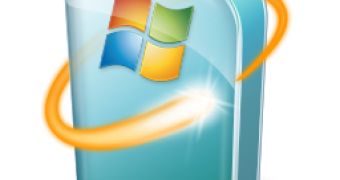This week, Microsoft will set into place all the pieces of the puzzle that will enable a smooth experience for the delivery of Windows Vista Service Pack 1. As far as Microsoft is concerned, all the work on the actual service pack itself has been finished. Illustrative of this is the fact that the company has already made available for download the gold bits of Vista SP1 to the 15,000 testers that were involved in test-driving the operating system's first service pack, as well as to the Volume Licensing customers and the MSDN and TechNet subscribers, starting last week.
The Vista end users are the only ones that got stuck with the short stick, but Microsoft will offer a little something-something associated with Vista SP1 for deployment. In January, the Redmond company informed that it will serve a total of three Vista SP1 pre-requisite updates. "This week we're releasing two more prerequisites for Windows Vista Service Pack 1 that will be coming later this quarter. We wanted to let you know about them because they are both marked as Important updates (and they're a little different than usual)," explained a member of the Microsoft Update Product Team.
The first pre-requisite update was delivered at the beginning of January 2008. Back then, Nick White, Windows Vista Product Manager, explained the need for Microsoft to implement KB935509 ahead of Vista SP1 general availability. But while KB935509 was addressed at just the Windows Vista Enterprise and Windows Vista Ultimate editions, KB938371 and KB937287 will make all the Vista SKUs fertile soil for the upcoming service pack, scheduled for mid-March.
"KB938371 is a multi-component update that supports the successful install of SP1 and allows it to be uninstalled. KB937287 updates the Windows Vista 'Servicing Stack.' Both updates (required before SP1 will be offered via Windows Update) are being made available now to reduce the number of reboots and make installation of the service pack easier. Even if you're not ready to install the service pack once it's released, you'll want to install these updates because they'll help increase performance and reduce failures for the installation of other updates," the MU team member added.

 14 DAY TRIAL //
14 DAY TRIAL //